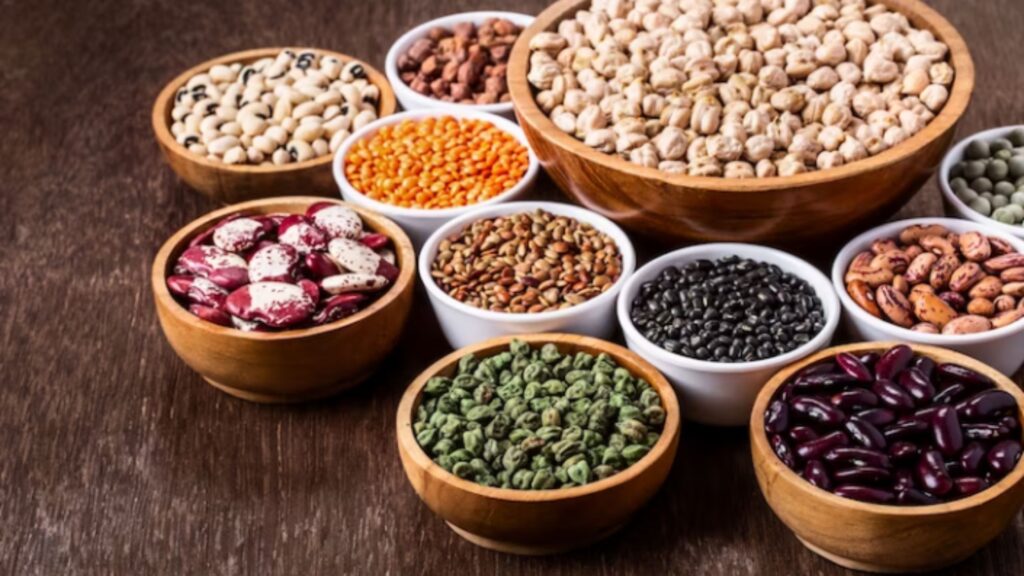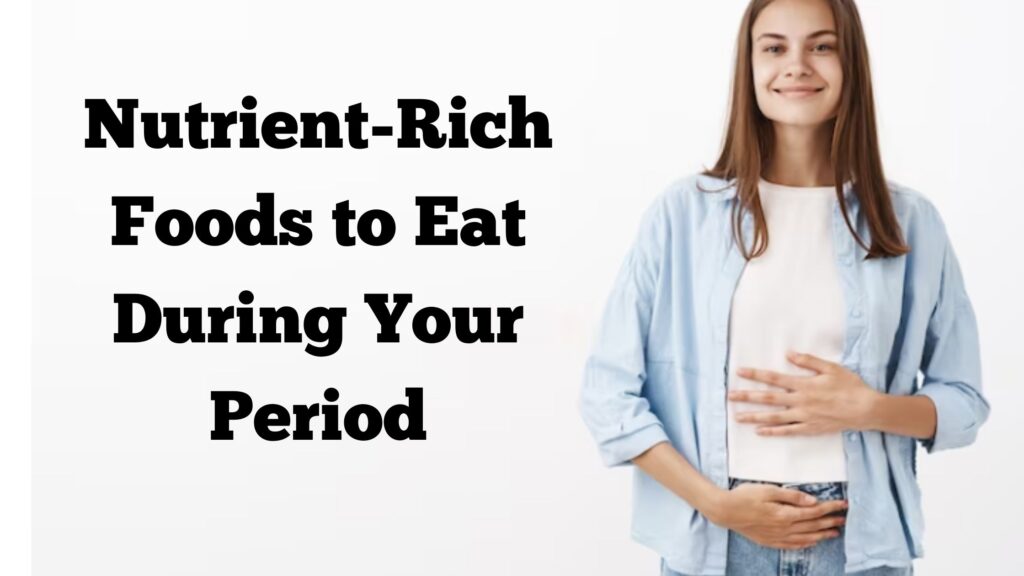During menstruation, your body undergoes many hormonal changes that can affect your mood, energy levels, and even your appetite. Some women experience intense cravings for unhealthy foods, while others lose their appetite altogether. However, it’s essential to eat healthy, nutrient-rich foods during your period to help alleviate some of the uncomfortable symptoms and provide your body with the nutrients it needs to function properly. In this blog, we will discuss seven nutrient-rich foods that you should consider incorporating into your diet during your period.
Leafy Greens:

Leafy greens are rich in iron, iron is essential for carrying oxygen to your cells, and if you don’t get enough, you may feel fatigued and sluggish. Iron is an essential nutrient that helps to transport oxygen throughout your body, and if you don’t have enough of it, you may feel tired and fatigued. Some excellent sources of iron include spinach, kale, and collard greens. Additionally, leafy greens are rich in folate, a B-vitamin that helps to support the production of red blood cells.
Legumes:

Legumes, such as lentils, beans, and chickpeas, are an excellent source of plant-based protein, which is essential for maintaining muscle mass and keeping your energy levels up. Additionally, legumes are rich in fiber, which can help to reduce bloating and constipation, two common symptoms during menstruation.
Water:
Water is essential for staying hydrated and improving circulation during your period. Drinking enough water can reduce bloating, constipation, and headaches. Additionally, staying hydrated can support kidney function and help flush out toxins.
Dark Chocolate:
Dark chocolate is an excellent source of magnesium, a mineral that can help to reduce cramps and improve mood. Magnesium is also essential for healthy bone and muscle function, making it an important nutrient to include in your diet during your period. Additionally, dark chocolate contains antioxidants that can help to reduce inflammation and protect against cell damage.
Whole Grains:
Whole grains, such as quinoa, brown rice, and whole wheat bread, are an excellent source of complex carbohydrates, which can help to provide your body with the energy it needs to function properly. Additionally, whole grains are rich in fiber, which can help to reduce bloating and constipation, two common symptoms during menstruation.
Fatty Fish:
Fatty fish, such as salmon, sardines, and mackerel, are an excellent source of omega-3 fatty acids, which can help to reduce inflammation and improve mood. Additionally, fatty fish are rich in vitamin D, an essential nutrient that can help to support bone health and reduce the risk of chronic diseases.
Bananas:
Bananas are an excellent source of potassium, a mineral that can help reduce bloating, cramps, and water retention. Additionally, bananas are high in vitamin B6, which can help alleviate mood swings and reduce symptoms of premenstrual syndrome (PMS).
Eggs:
Eggs are an excellent source of protein and vitamin D, making them an ideal food to eat during your period. Additionally, eggs contain choline, a nutrient that supports brain health and may help reduce PMS symptoms.
Nuts and Seeds:
Nuts and seeds are an excellent source of healthy fats, protein, and fiber, making them an ideal snack during your period. Some of the best nuts and seeds to include in your diet include almonds, walnuts, chia seeds, and flaxseeds. These foods are rich in omega-3 fatty acids, which can help to reduce inflammation and improve mood.
Conclusion:
In conclusion, eating a balanced diet during your period can help reduce symptoms and improve energy levels. Including nutrient-rich foods like leafy greens, bananas, fatty fish, eggs, nuts and seeds, whole grains, yogurt, dark chocolate, berries, and water can support your overall health and well-being during your period. Additionally, it’s essential to avoid processed foods, alcohol, and caffeine, which can exacerbate menstrual symptoms and make you feel worse. By making small changes to your diet during your period, you can improve your physical and emotional health and feel your best.

